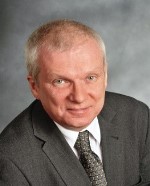Let’s talk about public projects!
SERIES ARTICLE
By Stanisław Gasik
Warsaw, Poland
Introduction
Programs are implemented in all sectors of the economy: private, government, and non-government. Are principles, rules, goals, and sets of stakeholders the same or similar in all sectors? Can solutions developed for other sectors be directly implemented in the government sector? Are the success criteria for a government program defined the same way as the success criteria for a commercial program?
I will try to sketch the answers to these questions in this article.
Public policy programs
Each public administration unit implements programs related to its scope of operation. Schools, hospitals, and post offices carry out programs for the renovation of their own facilities, staff development, or restructuring in general. Such programs consist of projects and operations and are used to implement the organization’s strategy. Programs implemented within one organization are called organizational programs (Gasik, 2023b). If such programs consist only of projects, i.e. they are project programs, then existing standards, such as the Standard for Program Management PMI (2017), can be used to manage them. But these standards are not applicable to operational and mixed programs.
But the concept of a program in public administration also has another, more important, meaning. Governments, or more precisely, the ruling political parties, define and implement public policies, the main components of which are intentions to act. A government may have the policy to encourage doctors to immigrate and also a policy to develop the submarine fleet. A government may have a policy of equal pay for the genders. A government policy may be to protect a particular species of animal threatened with extinction. Another policy may be the provision of public services over the Internet, and another may be the development of winter sports. For a public policy to be implemented, a certain set of actions must be carried out. And here we come to the second meaning of the term program: it is a way of implementing public policy.
We call such programs policy programs. Policy programs can also consist of projects and operations. The development of winter sports can be implemented through the construction of sports facilities, participation in events (projects) but primarily through long-term, systematic recruitment and training of athletes (operations). Policy programs, like public policies, usually involve multiple public organizations.
Public policy plays a special role in the life cycle of policy programs. It is the main document that determines whether a policy program can be launched. In this sense, it corresponds to the business case of private sector programs.
More…
To read entire article, click here
Editor’s note: This article is the first in a series related to the management of public programs and projects, those organized, financed and managed by governments and public officials. The author, Dr. Stanisław Gasik, is the author of the book “Projects, Government, and Public Policy”, recently published by CRC Press / Taylor and Francis Group. That book and these articles are based on Dr. Gasik’s research into governmental project management around the world over the last decade. Stanisław is well-known and respected by PMWJ editors; we welcome and support his efforts to share knowledge that can help governments worldwide achieve their most important initiatives.
How to cite this paper: Gasik, S. (2023). Public Policies and Policy Programs, Let’s talk about public projects, series article, PM World Journal, Volume XII, Issue III, March. Available online at https://pmworldjournal.com/wp-content/uploads/2023/03/pmwj127-Mar2023-Gasik-Public-Policies-and-Policy-Programs.pdf
About the Author

Stanisław Gasik, PhD, PMP
Warsaw, Poland
![]()
Dr. Stanisław Gasik, PMP is a project management expert. He graduated from the University of Warsaw, Poland, with M. Sc. in mathematics and Ph. D. in organization sciences (with a specialty in project management). Stanisław has over 30 years of experience in project management, consulting, teaching, and implementing PM organizational solutions. His professional and research interests include project knowledge management, portfolio management, and project management maturity. He is the author of the only holistic model of project knowledge management spanning from the individual to the global level.
Since 2013, his main professional focus has been on public projects. He was an expert in project management at the Governmental Accountability Office, an institution of the US Congress. He is the author of “Projects, Government, and Public Policy,” a book that systematizes knowledge about government activities in the area of project management.
He was a significant contributor to PMI’s PMBOK® Guide and PMI Standard for Program Management and contributed to other PMI standards. He has lectured at global PMI and IPMA congresses and other international conferences.
His web page is www.gpm3.eu.
To view other works by Dr. Gasik, please visit his author showcase in the PM World Library at https://pmworldlibrary.net/authors/stanislaw-gasik-phd-pmp/









